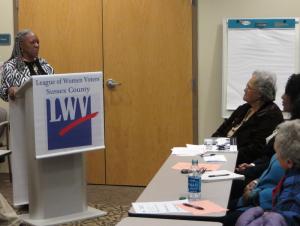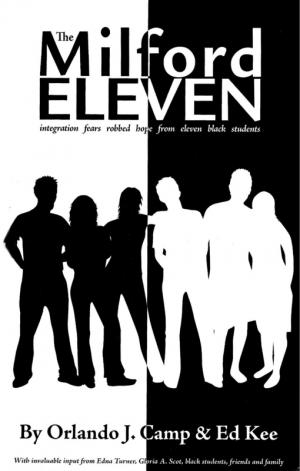Dozens of women voters, joined by a few men, assembled recently for a panel discussion on the black experience and history in Delaware, especially Sussex County.
With discourse on the early days of slavery and Jim Crow laws, segregation, education and the Civil Rights movement, among other topics, a panel of speakers from pastors to present-day high school students joined the League of Women Voters to share their stories of being black in Delaware.
"We should study black history," League of Women Voters Delaware President Charlotte King said, "Because black history is American history."
In a brief history lesson, King recalled black education in Delaware lagged even after a Supreme Court decision in Brown vs. the Board of Education ruled that segregation was unconstitutional in 1954.
She passed around a book called the Milford Eleven, a collection of first-hand accounts of the reluctance to desegregate the Milford School District, even 13 years after the Supreme Court decision.
Lower Sussex County Branch NAACP President Jane Hovington remembered the impact of Delaware State University's policy of free education for black students who maintained a certain grade point average.
Hovington also recalled a deep desire for education among black students and educators in Sussex County, that in some ways, made the separate educational system for "colored" students stronger before integration.
"There was a thirst for education," she said. "If there was anything that was destructive to the community, it was integration and the closing of the colored schools."
Ric Moore, coordinator of the Lewes Community Partnership and youth representation from Cape Henlopen High School, reflected on the historical impacts of changing transportation, education, voting rights and faith in the black community.
Delaware played a vital part of the underground railroad in the 19th century, Moore said,
"We had a lot of activity on the underground railroad because Philadelphia was a hotbed of the abolitionist movement," he said. "Delaware had many free blacks and by 1860, as many as 90 percent of blacks in Delaware were free."
The Methodist Church opposed slavery during that time period and black sailors, or seamen, were granted citizenship.
"When the Emancipation Proclamation was written, it did not free blacks in Delaware," Moore said. "Because they were already freed."
When Pastor Idola Batson took the floor, she discussed the founding of the African Methodist Episcopal Church and it's impact.
"The Methodist Church had great potential because they believed in a conversion experience," Batson said. "The Methodist Church allowed us to expound upon the word of God . The church educated people, taught them how to be financially solvent and buy their relatives out of slavery."
"The church has brought us so much," she said.
For more information about the League of Women Voters Delaware, go to www.lwvdelaware.org.






















































